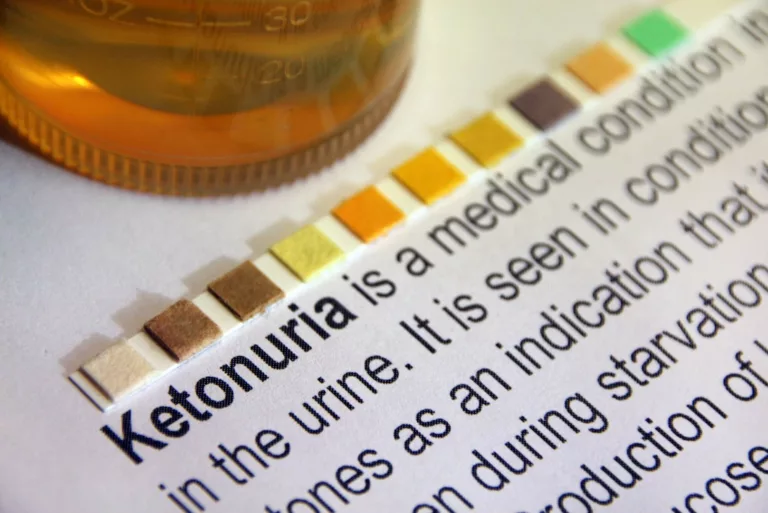Introduction
The prevalence of diabetes has reached alarming levels in recent years, making it a significant global health concern. According to the International Diabetes Federation, approximately 463 million adults worldwide were living with diabetes in 2019, and this number is projected to increase to 700 million by 2045 if the current trends persist.
Diabetes is a chronic metabolic disorder characterized by high blood sugar levels resulting from inadequate insulin production or impaired insulin function. Diabetes can be broadly classified into two main types: type 1 and type 2.
Type 1 diabetes, often diagnosed during childhood or adolescence, occurs when the body’s immune system mistakenly destroys insulin-producing cells in the pancreas. As a result, individuals with type 1 diabetes require lifelong insulin therapy to manage their blood sugar levels.
On the other hand, type 2 diabetes accounts for about 90% of all cases and typically develops later in life. It is primarily characterized by insulin resistance, where the body’s cells become less responsive to insulin’s actions.
Initially, the pancreas compensates by producing more insulin, but over time it may not be able to keep up with the demand for adequate insulin secretion. Consequently, blood glucose levels rise above the normal range.
How Does The Keto Diet Help With Diabetes? This article tries to answer this question with scientific facts.
Brief Overview of Diabetes as a Prevalent Health Condition
The impact of diabetes extends beyond elevated blood sugar levels; it affects various organ systems and increases the risk of complications such as cardiovascular disease, kidney failure, neuropathy (nerve damage), retinopathy (eye damage), and lower limb amputations. Moreover, individuals with poorly managed or uncontrolled diabetes face an increased risk of premature death.

Given these grave consequences associated with diabetes management becomes essential not only for maintaining glycemic control but also for preventing complications and improving overall quality of life. While conventional medical approaches like medication and lifestyle modifications play a crucial role in managing diabetes effectively, emerging research suggests that dietary interventions, such as the ketogenic diet (keto), can offer promising benefits.
Introduction to the Ketogenic Diet (Keto) and Its Principles
The ketogenic diet, often referred to as keto, is a low-carbohydrate, high-fat dietary approach originally developed in the 1920s as a therapeutic intervention for epilepsy. It involves significantly reducing carbohydrate intake and replacing it with fat. This dietary shift forces the body into a metabolic state called ketosis, where it primarily relies on fat for energy production instead of carbohydrates.
Keto works by restricting carbohydrate intake to a level low enough to induce ketosis. Typically, this means consuming less than 50 grams of carbohydrates per day or limiting carb intake to 5-10% of total daily caloric intake.
In contrast, fat consumption increases substantially and comprises approximately 70-75% of total daily calories. Protein consumption is moderate and makes up around 20-25% of the daily caloric intake.

The primary aim of keto is to shift the body’s metabolism from relying on glucose derived from carbohydrates to utilizing ketones produced from stored fat as its main fuel source. This transition has numerous physiological effects that extend beyond weight loss.
Along with triggering weight reduction due to increased fat burning, keto has been found to have potential benefits in managing various health conditions like type 2 diabetes. By understanding both diabetes as a prevalent health condition and introducing the principles behind the ketogenic diet (keto), we can explore further how keto can be utilized effectively for managing diabetes in subsequent sections.
Understanding Diabetes
Exploring the Complexity of Type 2 Diabetes
Diabetes, a chronic metabolic disorder affecting millions worldwide, is characterized by high blood sugar levels. Among its various forms, type 2 diabetes is the most prevalent. Unlike type 1 diabetes, which stems from an autoimmune response destroying insulin-producing cells in the pancreas, type 2 diabetes involves a combination of genetic and lifestyle factors. The Role of Lifestyle and Genetics
Type 2 diabetes typically arises due to a combination of genetic predisposition and environmental influences. Genetic factors contribute to impaired insulin secretion or reduced responsiveness to insulin (insulin resistance). However, it is important to note that genes alone do not determine one’s fate; lifestyle choices significantly influence the development and progression of type 2 diabetes. A Closer Look at Insulin Resistance
Insulin resistance plays a pivotal role in the progression of type 2 diabetes. When cells become resistant to insulin’s effects, they fail to efficiently absorb glucose from the bloodstream. Consequently, the pancreas produces more insulin in an attempt to compensate for this resistance. Underlying Mechanisms: Breaking Down Insulin Resistance
The intricate mechanisms behind insulin resistance involve multiple physiological processes. Adipose tissue (fat cells) releases inflammatory substances known as adipokines that interfere with insulin signaling pathways. This disrupts glucose transporters’ ability to facilitate glucose entry into muscle and fat cells.
Additionally, elevated levels of free fatty acids circulating in the blood contribute to insulin resistance by impairing cellular glucose uptake. Furthermore, inflammation triggered by obesity exacerbates insulin resistance through cytokine-mediated pathways. The Vicious Cycle: Insulin Resistance Fuels Diabetes Progression
Insulin resistance creates a detrimental cycle that fuels the progression toward full-blown type 2 diabetes. As pancreatic beta cells struggle to produce sufficient amounts of insulin to overcome resistance, blood glucose levels rise.
This leads to hyperglycemia, which further impairs insulin sensitivity and exacerbates the vicious cycle. Understanding the intricate relationship between insulin resistance and type 2 diabetes is crucial for developing effective interventions.
By addressing the underlying causes of insulin resistance, such as obesity and inflammation, individuals can mitigate their risk of developing diabetes or better manage it if already diagnosed. Through lifestyle modifications and dietary interventions like the ketogenic diet, combating diabetes becomes an achievable goal.
The Science Behind Keto and Diabetes Management
Explanation of how the keto diet works to regulate blood sugar levels
The ketogenic diet, commonly known as the keto diet, has gained significant attention for its potential benefits in managing diabetes. This low-carbohydrate, high-fat diet induces a metabolic state called ketosis, which plays a crucial role in regulating blood sugar levels.
When following a keto diet, individuals drastically reduce their carbohydrate intake and increase their fat consumption. This dietary shift forces the body to alter its primary fuel source from glucose to ketones.
Ketosis: What it is and how it affects the body’s metabolism
Ketosis is a natural physiological state that occurs when carbohydrates are limited or completely eliminated from the diet. In this state, the liver produces ketone bodies through the breakdown of fatty acids. These ketones serve as an alternative energy source for cells throughout the body, including those in the brain.
When glucose availability is limited due to reduced carbohydrate intake on a keto diet, insulin secretion decreases while glucagon levels rise. The drop in insulin signals adipose tissue to release stored fatty acids into circulation for energy production by other tissues.
The liver then converts these fatty acids into ketone bodies: beta-hydroxybutyrate (BHB), acetoacetate (AcAc), and acetone. These ketones can cross the blood-brain barrier and be utilized by neurons instead of glucose.
This switch from glucose metabolism to utilizing ketones as a primary fuel source provides several advantages for individuals with diabetes. Unlike glucose metabolism, which requires sufficient insulin production and sensitivity for proper utilization, ketone metabolism does not rely heavily on insulin-dependent processes.
Reduced carbohydrate intake: Impact on insulin production and sensitivity
One key aspect of the ketogenic diet’s effectiveness in managing diabetes lies in its significant reduction of carbohydrate intake. By minimizing the consumption of carbohydrates, the body’s insulin response is reduced, positively impacting blood sugar regulation and overall insulin sensitivity.
Carbohydrates are broken down into glucose during digestion, which triggers the release of insulin from the pancreas to transport glucose into cells. In individuals with diabetes, this process is impaired due to either inadequate insulin production or insulin resistance.
By restricting carbohydrate intake on a keto diet, blood sugar spikes are minimized, and fewer demands are placed on the pancreas to produce large amounts of insulin. This reduction in dietary carbohydrates allows for better control over blood sugar levels and decreases the reliance on exogenous insulin or other diabetes medications.
Furthermore, research has shown that low-carbohydrate diets like keto can improve overall insulin sensitivity. When carbohydrates are limited, the body becomes more efficient at utilizing available glucose and responding to insulin signals.
This increased sensitivity contributes to better glycemic control and reduced risk of diabetic complications over time. By inducing ketosis through a low-carbohydrate, high-fat diet like keto, individuals with diabetes can experience improved blood sugar regulation and enhanced insulin sensitivity.
The shift from glucose metabolism towards using ketones as an alternative energy source offers unique advantages in managing this chronic condition effectively. It is crucial for individuals with diabetes considering dietary changes to consult with healthcare professionals who can provide personalized guidance based on their specific needs and medical history.
Benefits of Keto for Diabetes Management
The Power of Weight Loss: Breaking the Chains of Obesity and Insulin Resistance
Obesity is a significant risk factor for developing type 2 diabetes, as it promotes insulin resistance, a condition in which cells fail to respond to the hormone insulin effectively. The ketogenic diet, with its low-carbohydrate and high-fat principles, has emerged as a promising approach to combat obesity and its associated metabolic disorders.
Numerous studies have demonstrated the effectiveness of keto in weight reduction among individuals with diabetes. One notable study conducted by Yancy et al., published in “Annals of Internal Medicine,” examined the impact of a low-carbohydrate ketogenic diet on weight loss and glycemic control among obese individuals with type 2 diabetes.
The results were remarkable, revealing that participants who adhered to the keto diet for 24 weeks experienced significant weight loss compared to those following a traditional low-fat diet. Moreover, these individuals exhibited improved insulin sensitivity and reduced triglyceride levels.
The Glycemic Control Triumph: Keto’s Impact on Blood Sugar Regulation
Maintaining stable blood sugar levels is crucial for individuals with diabetes as uncontrolled fluctuations can lead to serious complications. The ketogenic diet has shown promising results in improving glycemic control by reducing blood sugar spikes and enhancing insulin sensitivity. A study published in “Nutrition & Metabolism” assessed the effects of a very low-carbohydrate ketogenic diet on glycemic control among overweight patients with type 2 diabetes.
The findings revealed that after 16 weeks on the keto diet, participants experienced substantial reductions in both fasting blood glucose levels and HbA1c (a long-term measure of blood sugar control). These improvements demonstrate how keto can effectively regulate glucose metabolism and potentially reduce the risk of diabetic complications.
Unlocking Lower HbA1c Levels: Evidence Supporting Keto’s Impact
HbA1c levels reflect the average blood sugar levels over a prolonged period, offering valuable insights into an individual’s diabetes management. Research has consistently shown that the ketogenic diet can lead to significant reductions in HbA1c levels, indicating improved long-term blood glucose control. A study published in “Diabetes Therapy” investigated the impact of the ketogenic diet on HbA1c levels among individuals with type 2 diabetes.
The results demonstrated a substantial reduction in HbA1c levels after three months following a strict keto diet. These findings highlight how adopting a carbohydrate-restricted eating pattern can positively influence long-term diabetes management and reduce the risk of complications associated with elevated blood sugar levels.
Reduced Medication Dependence: A Glimpse of Freedom for Some
For individuals with diabetes, reducing reliance on medications is an empowering goal. Emerging evidence suggests that adhering to a ketogenic diet can potentially lead to reduced medication dependence among certain individuals. Several studies have examined this phenomenon, including one published in “Nutrition & Diabetes.” It explored the effects of a very low-carbohydrate ketogenic diet on medication requirements in overweight individuals with type 2 diabetes.
The results indicated that participants following the keto diet experienced significant reductions in their medication dosages or complete discontinuation altogether, demonstrating that dietary interventions like keto have the potential to improve metabolic health and decrease reliance on pharmaceutical interventions. Embracing the ketogenic diet offers multiple benefits for individuals managing diabetes.
Through effective weight loss strategies that combat obesity and insulin resistance, improved glycemic control mechanisms regulating blood sugar levels, noteworthy reductions in HbA1c markers indicating long-term glucose management proficiency, and even potential reduction in medication dependencies for some patients – keto proves to be a formidable ally against diabetes. By adopting this dietary approach under proper medical guidance, many individuals may find renewed hope and empowerment as they navigate the challenging path of diabetes management.
Potential Mechanisms Behind Keto’s Effectiveness Against Diabetes
Increased Ketone Production: How Ketones Provide an Alternative Energy Source for Cells
Ketone bodies, namely beta-hydroxybutyrate (BHB), acetoacetate, and acetone, are produced by the liver when the body enters into a state of ketosis. These ketones serve as an alternative energy source for cells in the absence of glucose. In diabetes, where insulin resistance hampers glucose utilization, ketones become crucial players in maintaining cellular energy balance.
When following a ketogenic diet, the low carbohydrate intake forces the body to deplete glycogen stores and switch to utilizing fat as its primary fuel source. Consequently, fatty acids are broken down through a process called beta-oxidation, leading to the production of ketone bodies.
As blood ketone levels increase during a ketogenic state, cells throughout the body can utilize them for energy production. Ketones offer several advantages over glucose as an energy substrate for cells affected by insulin resistance.
Firstly, they can be readily used by various tissues such as muscle and brain cells without requiring insulin-mediated glucose transporters (GLUTs) for uptake. Secondly, unlike glucose metabolism which generates reactive oxygen species (ROS) and contributes to oxidative stress in diabetes, ketones result in minimal ROS production due to their more efficient metabolic pathways.
Furthermore, studies suggest that elevated levels of circulating ketones may enhance mitochondrial biogenesis and function within cells. Mitochondria play a vital role in cellular energy production and regulation of oxidative stress; hence improved mitochondrial function resulting from increased ketone usage may have protective effects against diabetic complications.
Conclusion
The ketogenic diet has emerged as a promising dietary intervention for managing diabetes due to its potential mechanisms targeting key aspects of the disease. By inducing nutritional ketosis and increasing ketone production, the diet provides an alternative energy source for cells affected by insulin resistance. This alternative fuel can bypass the impaired glucose utilization commonly associated with diabetes.
Moreover, the use of ketones as an energy substrate has been linked to improved cellular function, reduced oxidative stress, and potential protective effects against diabetic complications. While more research is needed to fully elucidate the mechanisms behind keto’s effectiveness against diabetes and determine its long-term impacts, the existing evidence is promising.
Incorporating a ketogenic diet under medical supervision may offer individuals with diabetes a viable strategy for improving glycemic control and reducing dependence on medications. However, it is important to note that any dietary modification should be undertaken in consultation with healthcare professionals who can provide personalized guidance based on individual needs and considerations.
Let us envision a future where those living with diabetes have access to effective dietary interventions such as keto that empower them to regain control over their health. By embracing innovative approaches like the ketogenic diet while complementing them with comprehensive medical care and lifestyle modifications, we can strive towards a world where diabetes management becomes not merely a challenge but an attainable goal leading to better health outcomes and enhanced quality of life.
References
Efficacy of Ketogenic Diets on Type 2 Diabetes: a Systematic Review | SpringerLink
How the Keto Diet Affects Type 2 Diabetes – Cleveland Clinic
Keto Diet for Diabetes and Prediabetes? Benefits vs. Precautions – Dr. Axe (draxe.com)
How the Ketogenic Diet Works for Type 2 Diabetes (healthline.com)




